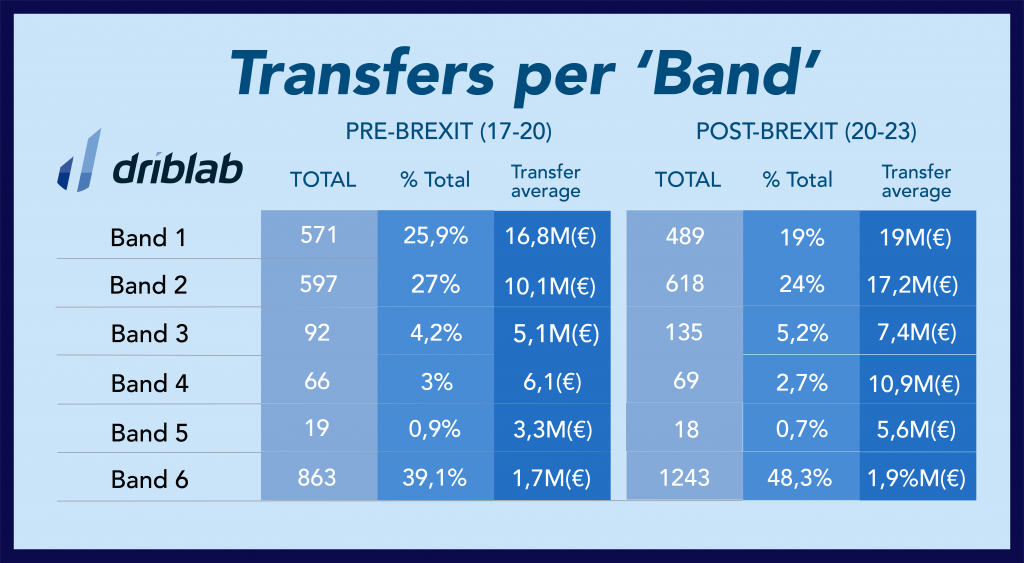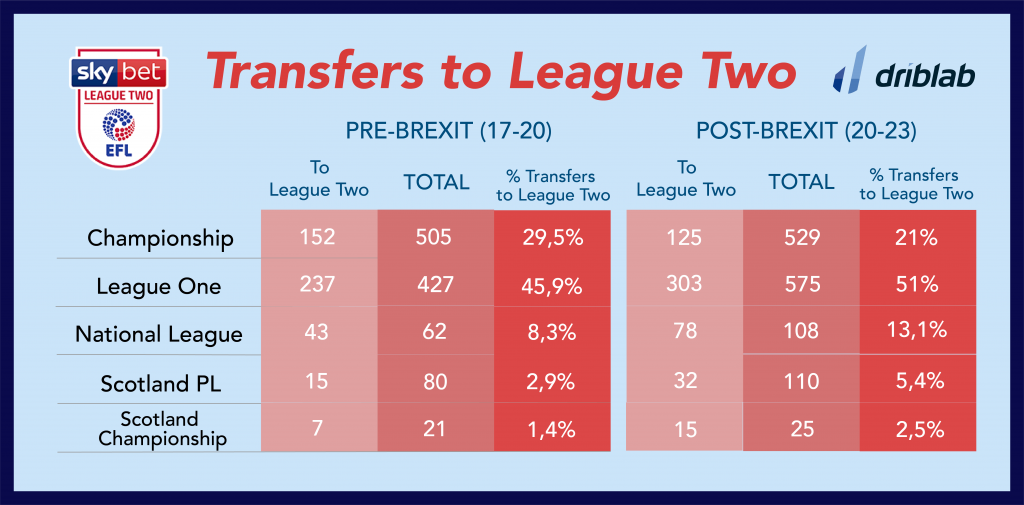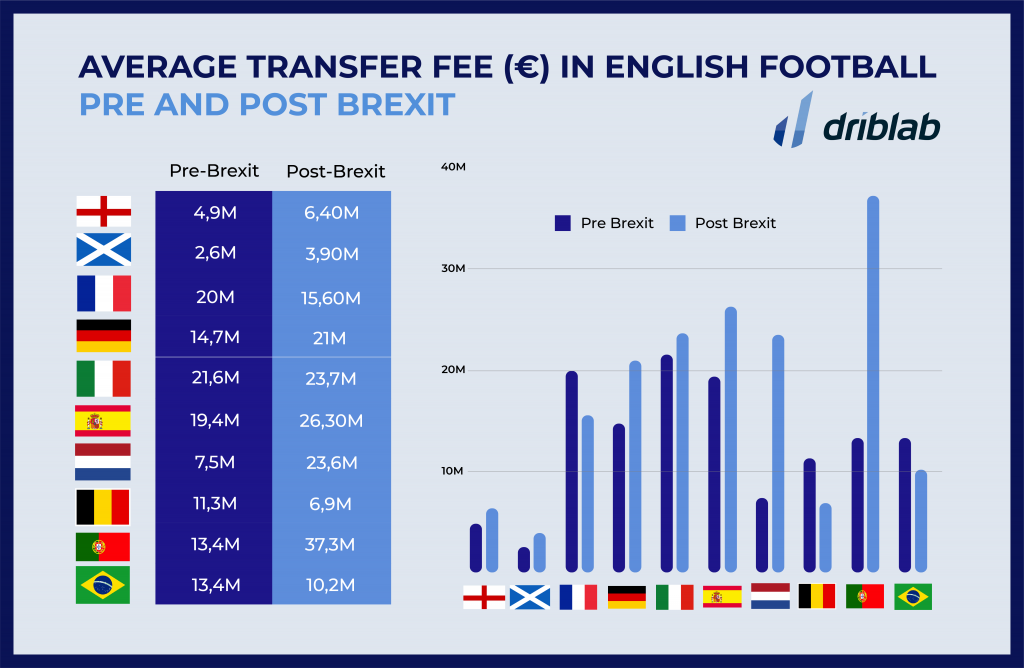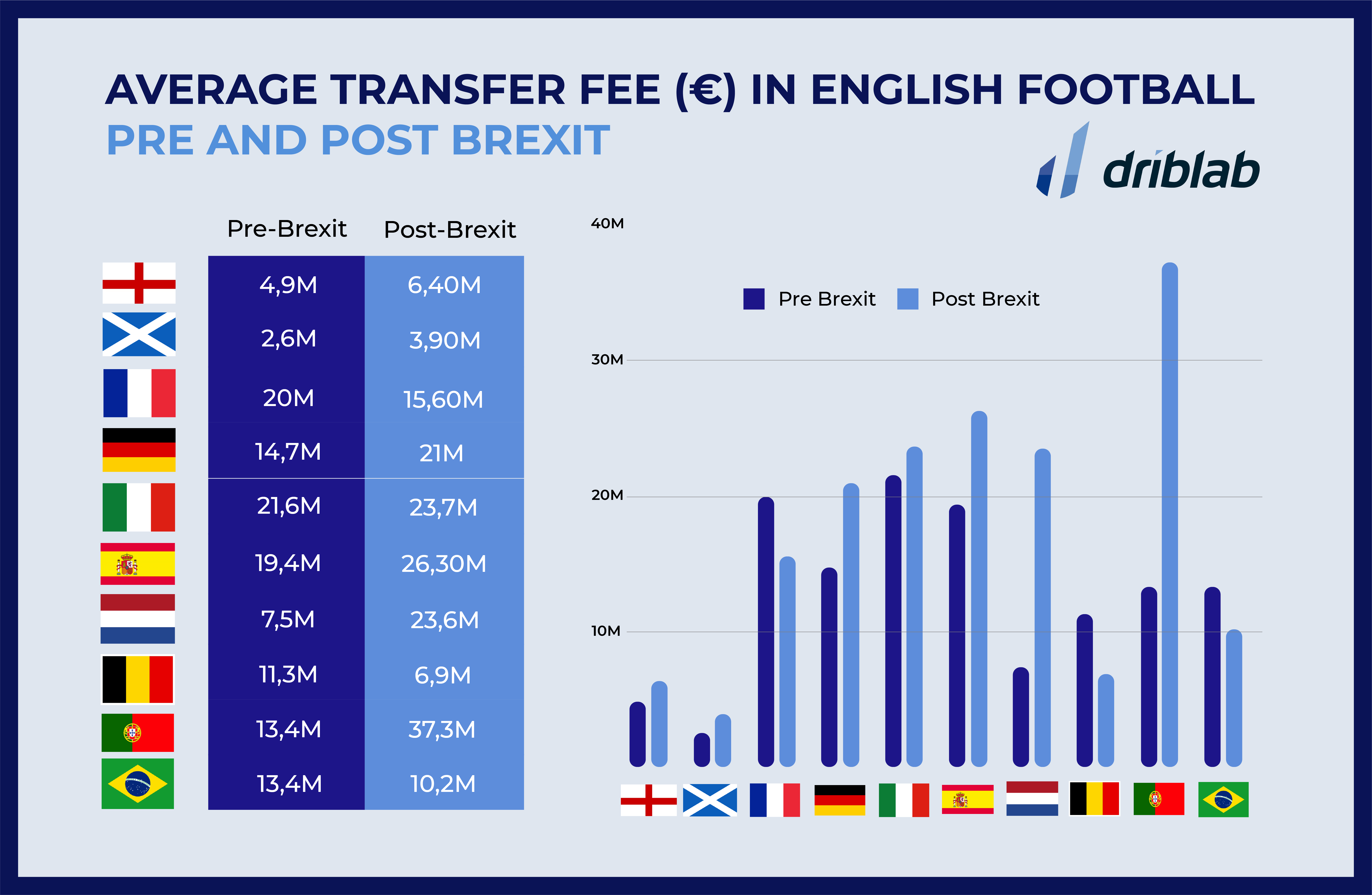Until further notice, the inventors of football are also the masters of the industry. This was not always the case, but now it is more so than ever. Season after season, the financial differences between the Premier League and the rest of the championships have been widening, and the entry of foreign capital has added to this, turning the English top flight into an ecosystem with which it is no longer possible to compete in terms of economic power and size.
In this text, we propose to draw a picture of how not only the Premier League but all the professional categories of English football have behaved before and after Brexit, a measure that placed greater obstacles on the entry of foreign footballers and that has had a certain impact on the origin of the players signed by clubs in all the professional divisions of English football.
With the entry of Brexit and the GBE filter (points required to be able to play in Great Britain), different scoring filters were established for six different bands, establishing a differentiation by country and league to which different points were awarded for the number of matches played in local competition and in European competition. In other words, to simplify: it gives more points to play 10 league matches in a big European Band 1 or Band 2 league than to have played them in Poland or Chile.
*Condition: we do not take into account transfers between the same league. I.e. a transfer between two Premier League teams is not taken into account for the analysis but a transfer between a Championship and Premiership team is taken into account.
**Do not confuse the country of origin of the transfer with the nationality of the transferred player.
Band 1. Includes Premier League, Bundesliga, LaLiga, Serie A and Ligue 1.
Band 2. Includes Portuguese First Division, Eredivisie, Belgian First Division, Turkish Super League and English Second Division.
Band 3. Russian First Division, Brazilian Championship Seria A, Argentinian First Division, Liga MX, and Scottish First Division.
Band 4. Czech First Division, Croatian First Division, Swiss Super League, LaLiga 2 Bundesliga 2, Ukrainian First Division, Greek Super League, Colombian Primera A, MLS, Austrian Bundesliga and Ligue 2.
Band 5. Serbian Super League, Danish Super League, Polish First Division (Ekstraklasa), Slovenian First Division, Chilean First Division, Uruguayan First Division and Chinese Super League.
Band 6. All leagues not included in the previous sections.
This filter has led to a major shift in the acquisition of Band 6 players by all professional divisions of English football (Premier League, Championship, League One, League Two and National League):

Of particular relevance is what has happened post-Brexit in League Two, who have signed far more players from League One, National League, Premiership or Scotland Premiership than before Brexit, which is reflected in the percentages of distribution and importance over the total.

As far as the Premier League is concerned, the average costs of each transfer continue to rise. The English Premier League continues to increase the average transfer price in almost all the countries of origin (we have taken into account countries that have had a minimum of 10 transfers to any division of English football). This trend is increasing and looks set to continue in the future.
Portugal is the team that has sold the most expensive players on average in the last three years, with an average of 37.3 million euros per transfer. Only France and Brazil have generated a cheaper average sale than before Brexit.

Among other conclusions, the data show that the proportion of players from the UK (England, Scotland, Ireland, Wales) remains the same pre-Brexit 79.3% compared to 81.0% post-Brexit. In this sense, without considering transfers from the UK, transfers coming directly from South America have come to represent 6.1% when before Brexit it was 2.2%.
Transfers coming directly from South America have come to represent 6.1% when before Brexit it was 2.2%
Founded in 2017 as a consultancy, Driblab has driven innovation through data across all aspects of professional football. Thanks to a transversal model, its database collects and models statistics in all directions. From converting matches and videos into bespoke data for training academies to developing cutting-edge technology, helping clubs, federations and representative agencies in talent scouting and transfer markets. With customisable software and consultancy designs and services, Driblab’s intelligent data is used by clubs around the world, with success stories such as Dinamo Zagreb, Real Betis or Girondins de Bordeaux. Here you can learn more about how we work and what we offer.














